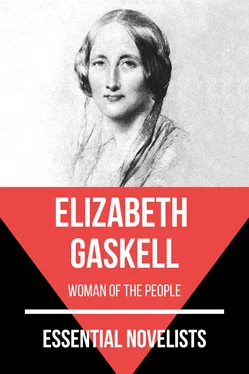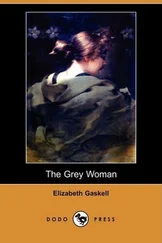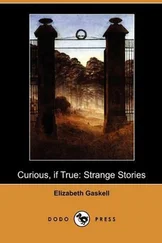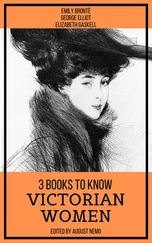'You have taken some steps about the rioters, I suppose? You don't apprehend any more violence, do you? Where were the police? Never at hand when they're wanted!'
'On the contrary, I saw three or four of them, when the gates gave way, struggling and beating about in fine fashion; and more came running up just when the yard was clearing. I might have given some of the fellows in charge then, if I had had my wits about me. But there will be no difficulty, plenty of people can identify them.'
'But won't they come back to-night?'
'I'm going to see about a sufficient guard for the premises. I have appointed to meet Captain Hanbury in half an hour at the station.'
'You must have some tea first.'
'Tea! Yes, I suppose I must. It's half-past six, and I may be out for some time. Don't sit up for me, mother.'
'You expect me to go to bed before I have seen you safe, do you?'
'Well, perhaps not.' He hesitated for a moment. 'But if I've time, I shall go round by Crampton, after I've arranged with the police and seen Hamper and Clarkson.' Their eyes met; they looked at each other intently for a minute. Then she asked:
'Why are you going round by Crampton?'
'To ask after Miss Hale.'
'I will send. Williams must take the water-bed she came to ask for. He shall inquire how she is.'
'I must go myself.'
'Not merely to ask how Miss Hale is?'
'No, not merely for that. I want to thank her for the way in which she stood between me and the mob.'
'What made you go down at all? It was putting your head into the lion's mouth!' He glanced sharply at her; saw that she did not know what had passed between him and Margaret in the drawing-room; and replied by another question:
'Shall you be afraid to be left without me, until I can get some of the police; or had we better send Williams for them now, and they could be here by the time we have done tea? There's no time to be lost. I must be off in a quarter of an hour.'
Mrs. Thornton left the room. Her servants wondered at her directions, usually so sharply-cut and decided, now confused and uncertain. Mr. Thornton remained in the dining-room, trying to think of the business he had to do at the police-office, and in reality thinking of Margaret. Everything seemed dim and vague beyond—behind—besides the touch of her arms round his neck—the soft clinging which made the dark colour come and go in his cheek as he thought of it.
The tea would have been very silent, but for Fanny's perpetual description of her own feelings; how she had been alarmed—and then thought they were gone—and then felt sick and faint and trembling in every limb.
'There, that's enough,' said her brother, rising from the table. 'The reality was enough for me.' He was going to leave the room, when his mother stopped him with her hand upon his arm.
'You will come back here before you go to the Hales', said she, in a low, anxious voice.
'I know what I know,' said Fanny to herself.
'Why? Will it be too late to disturb them?'
'John, come back to me for this one evening. It will be late for Mrs. Hale. But that is not it. To-morrow, you will—— Come back to-night, John!' She had seldom pleaded with her son at all—she was too proud for that: but she had never pleaded in vain.
'I will return straight here after I have done my business. You will be sure to inquire after them?—after her?'
Mrs. Thornton was by no means a talkative companion to Fanny, nor yet a good listener while her son was absent. But on his return, her eyes and ears were keen to see and to listen to all the details which he could give, as to the steps he had taken to secure himself, and those whom he chose to employ, from any repetition of the day's outrages. He clearly saw his object. Punishment and suffering, were the natural consequences to those who had taken part in the riot. All that was necessary, in order that property should be protected, and that the will of the proprietor might cut to his end, clean and sharp as a sword.
'Mother! You know what I have got to say to Miss Hale, to-morrow?' The question came upon her suddenly, during a pause in which she, at least, had forgotten Margaret.
She looked up at him.
'Yes! I do. You can hardly do otherwise.'
'Do otherwise! I don't understand you.'
'I mean that, after allowing her feelings so to overcome her, I consider you bound in honour—'
'Bound in honour,' said he, scornfully. 'I'm afraid honour has nothing to do with it. "Her feelings overcome her!" What feelings do you mean?'
'Nay, John, there is no need to be angry. Did she not rush down, and cling to you to save you from danger?'
'She did!' said he. 'But, mother,' continued he, stopping short in his walk right in front of her, 'I dare not hope. I never was fainthearted before; but I cannot believe such a creature cares for me.'
'Don't be foolish, John. Such a creature! Why, she might be a duke's daughter, to hear you speak. And what proof more would you have, I wonder, of her caring for you? I can believe she has had a struggle with her aristocratic way of viewing things; but I like her the better for seeing clearly at last. It is a good deal for me to say,' said Mrs. Thornton, smiling slowly, while the tears stood in her eyes; 'for after to-night, I stand second. It was to have you to myself, all to myself, a few hours longer, that I begged you not to go till to-morrow!'
'Dearest mother!' (Still love is selfish, and in an instant he reverted to his own hopes and fears in a way that drew the cold creeping shadow over Mrs. Thornton's heart.) 'But I know she does not care for me. I shall put myself at her feet—I must. If it were but one chance in a thousand—or a million—I should do it.'
'Don't fear!' said his mother, crushing down her own personal mortification at the little notice he had taken of the rare ebullition of her maternal feelings—of the pang of jealousy that betrayed the intensity of her disregarded love. 'Don't be afraid,' she said, coldly. 'As far as love may go she may be worthy of you. It must have taken a good deal to overcome her pride. Don't be afraid, John,' said she, kissing him, as she wished him good-night. And she went slowly and majestically out of the room. But when she got into her own, she locked the door, and sate down to cry unwonted tears.
Margaret entered the room (where her father and mother still sat, holding low conversation together), looking very pale and white. She came close up to them before she could trust herself to speak.
'Mrs. Thornton will send the water-bed, mamma.'
'Dear, how tired you look! Is it very hot, Margaret?'
'Very hot, and the streets are rather rough with the strike.'
Margaret's colour came back vivid and bright as ever; but it faded away instantly.
'Here has been a message from Bessy Higgins, asking you to go to her,' said Mrs. Hale. 'But I'm sure you look too tired.'
'Yes!' said Margaret. 'I am tired, I cannot go.'
She was very silent and trembling while she made tea. She was thankful to see her father so much occupied with her mother as not to notice her looks. Even after her mother went to bed, he was not content to be absent from her, but undertook to read her to sleep. Margaret was alone.
'Now I will think of it—now I will remember it all. I could not before—I dared not.' She sat still in her chair, her hands clasped on her knees, her lips compressed, her eyes fixed as one who sees a vision. She drew a deep breath.
'I, who hate scenes—I, who have despised people for showing emotion—who have thought them wanting in self-control—I went down and must needs throw myself into the melee, like a romantic fool! Did I do any good? They would have gone away without me I dare say.' But this was over-leaping the rational conclusion,—as in an instant her well-poised judgment felt. 'No, perhaps they would not. I did some good. But what possessed me to defend that man as if he were a helpless child! Ah!' said she, clenching her hands together, 'it is no wonder those people thought I was in love with him, after disgracing myself in that way. I in love—and with him too!' Her pale cheeks suddenly became one flame of fire; and she covered her face with her hands. When she took them away, her palms were wet with scalding tears.
Читать дальше












